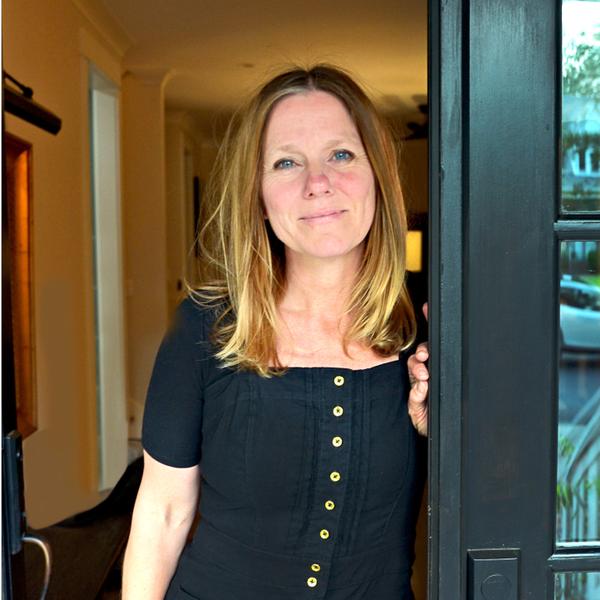Do You Have Housing Recession PTSD
Here’s Why This Housing Slowdown is Nothing Like the Great Recession

Are you worried that rising interest rates might downsize your dream of owning a cute little three-bedroom bungalow to a studio walk-up?
Do your besties groan when you open your Zillow app at happy hour?
Has your realtor threatened to fire you because you urgently request a showing only to change your mind and cancel? And then change your mind again?
Did you survive the housing crash of 2006-2008?
If you answered YES to any of these questions, you might have Housing Recession PTSD. For those who lived through the Great Recession, the current news has us asking ourselves if 2022 will be anything like the housing crash fifteen years ago. I am a realtor who got my start in this business in the early 2000s when we had so many buyers lined up out the door that “Next” was our standard client greeting. In 2006, our nationwide tune changed when the housing market froze up like an old Frigidaire in a beat-up rental house. Realtors in every town in America started contemplating the upsides of selling life insurance instead. Many did. Me? I kept right on selling.
Sure, buyers were fewer and farther between, but many folks who still needed a home demanded to work with an experienced professional to help decipher the complicated real estate world we found ourselves in. I mean, nobody wanted to screw up that purchase. So, I stayed busy, and I’m here to tell you, “Relax. There is no need to worry. This housing slowdown is nothing like the last one. You got this – if you want it – that is.” Deciding if now is a good time for you to buy a home is based on many personal factors. However, evaluating the real estate market’s health and viability is pretty straightforward.
Let’s get to it.
Will Home Prices Fall?
Housing prices fall when supply is high and demand is low. A seller’s market is quantified in which there are six months of housing inventory to meet demand. Nationwide, there is currently a three-month supply of houses on the market. Because this is still a strong seller’s market, many owners still receive three to four competitive offers when they sell their homes. Once we reach a six-to-seven-month supply of homes, it will be considered a neutral market. Anything over seven months, as we experienced during the 2006-2008 housing recession when inventory climbed to as much as fourteen months, is a buyer’s market. Bottom line? Without a surplus of homes on the market to put downward pricing pressure on sellers, home prices will remain stable and are predicted to rise as much as 10% this year.
So, just what would it take for housing prices to dip?
A tsunami of housing inventory. Is that likely? Housing inventory comes from three places: 1) existing homeowners choosing to sell their current homes,2) new home inventory, and 3) foreclosures. Inventory from existing homeowners continues to trickle onto the market at a snail’s pace. Homebuilders have struggled in the past two years to get inventory on the market due to sluggish supply chains and labor shortages, but they have made gradual progress. Currently, there is a small buildup of new homes finishing up construction, and many builders have begun offering cash incentives to customers who buy one of these surplus inventory homes. With news this April of possible interest rate increases, many builders pumped the brakes on construction housing starts, intent on not overbuilding as they did in the years before the Great Recession.
Foreclosure filings (still at an all-time low) ticked up a bit after the pandemic foreclosure moratorium was lifted, but due to the forbearance program, the program that helps keep owners out of foreclosure, 81% of these homes were either paid in full or are in repayment plans. Only 18% are still in trouble. In fact, due to the tight lending restrictions put in place after the housing crash of 2006-2008, foreclosures are the lowest they’ve been in decades, and even these potential foreclosures are not enough to cause a surplus should they hit the market.
But wait. You said housing inventory is rising, right?
While housing inventory is expected to rise, the stock will only be enough to take some pressure off buyers in the home shopping process. This is excellent news considering the challenging time would-be buyers have had trying to purchase in the past two years. That means buyers can expect a chance to better evaluate the home they’d like to buy, and while they may still compete with other buyers, the competition likely won’t be enough to drive prices up by 10 or 20% as it did last year. Some home shoppers may even find they have the upper hand in a transaction, as with new homes, where builders are offering cash incentives for buyers who close on finished homes!
Bottom line? You’ll find a more hospitable home shopping market now compared to last year. But don’t get hung up waiting for falling prices or freeze over interest rate fears and miss out altogether. If you need a home and you are in a position to own one, go ahead and fire up your Zillow app and start swiping on those cute little bungalows! Real Estate market conditions aren’t like the ones we suffered during the Great Recession!
Categories
Recent Posts





GET MORE INFORMATION


